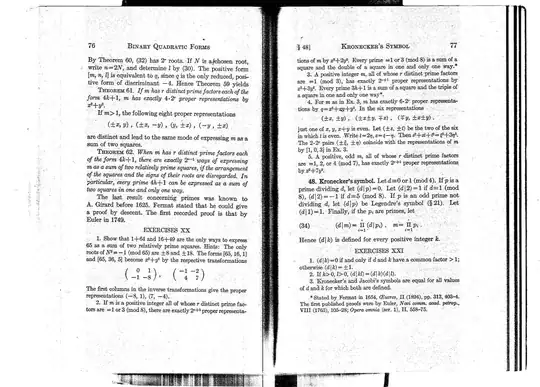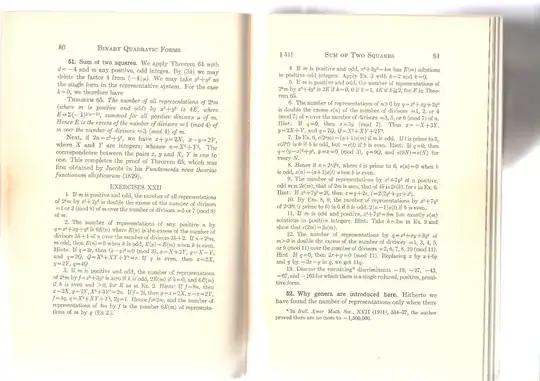Few years ago I came accross a paper, or maybe a solution of a problem from a journal (possibly AMM or something like that) in which the following result was proved:
The smallest positive integer that can be represented as a sum of two squares in exactly $2^s$ ways (where $s\geqslant 2$ is a given integer) equals the product of $s-2$ smallest integers of the form $q^{2^l}$, where $q$ is a prime $\equiv 1\pmod 4$, and $l$ a nonnegative integer.
(This is not an exact quote, but my restatement of the result.) I am not sure whether this was the main result of the reference in question, or there were some other results in the same text. Anyway, I tried to find the mentioned reference, but without success. I vaguely recall that the problem is from some journal available on JSTOR (in fact, AMM first comes to mind), but I may well be wrong on that point. Is there anyone who knows what I am talking about?
Thank you very much in advance.
P. S. I am not looking for the proof of the mentioned result, it is not hard to prove it. I am looking specifically for the reference I remember, because I would like to put that reference in a book that I am currently writing.

